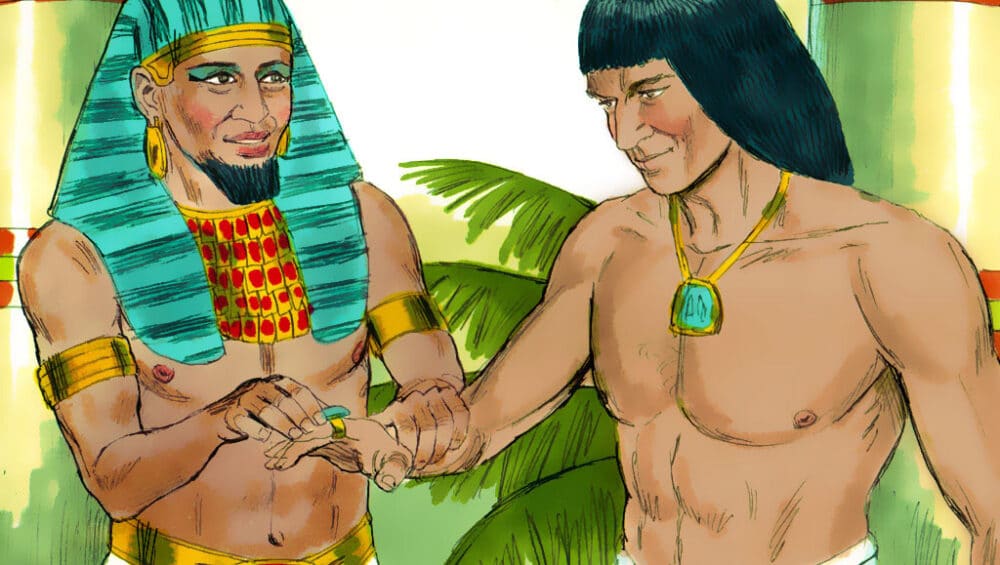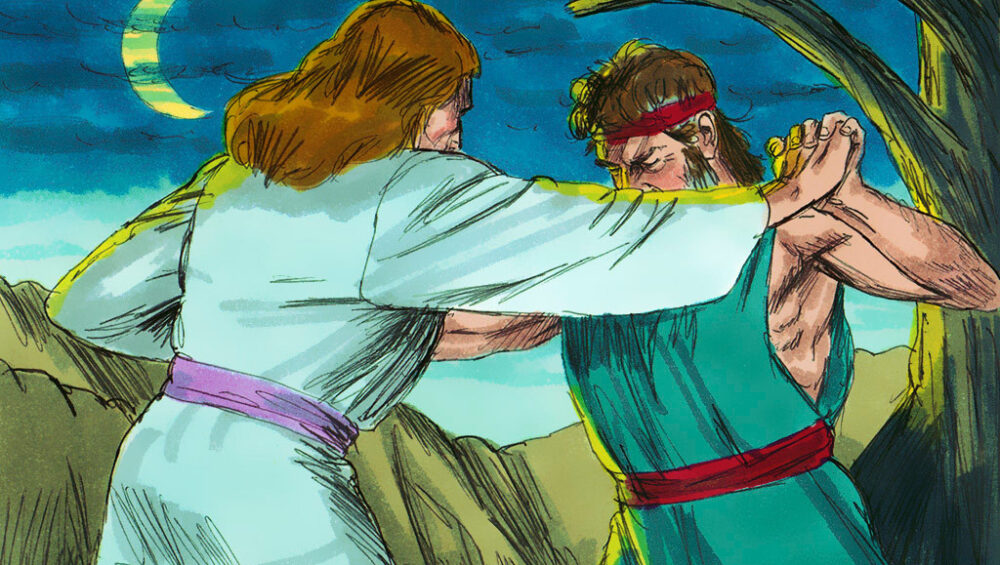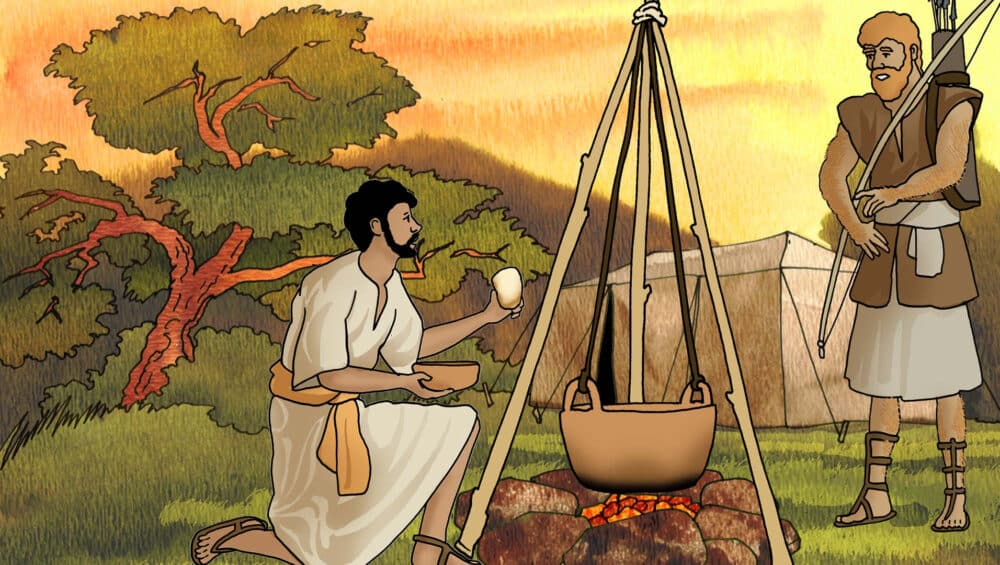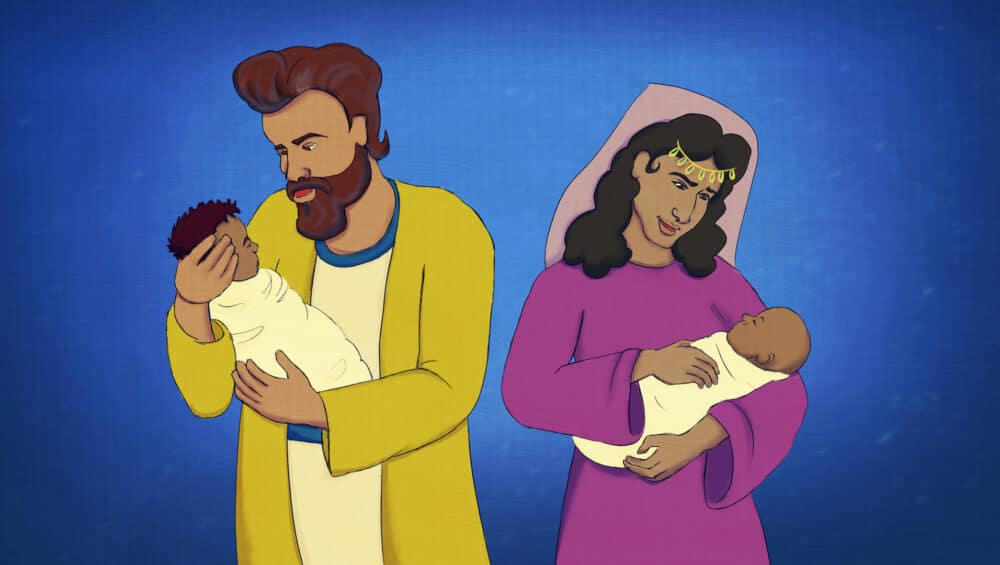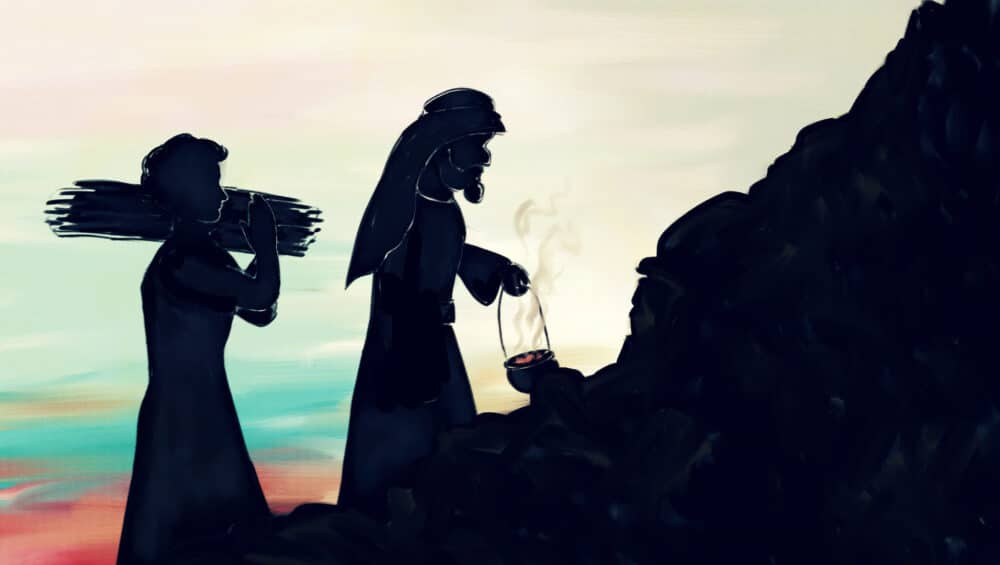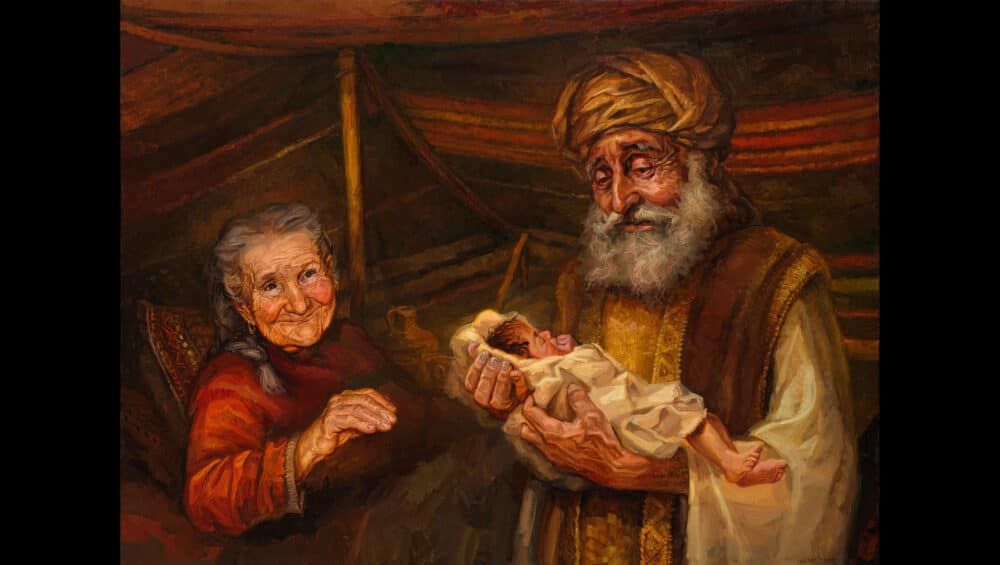Sweet Publishing / FreeBibleimages.org
Welcome to Livin’ Light’s Bible-In-A-Year challenge of discovering God’s love for us and His purpose for our lives. Here is the format for this great adventure: The daily reading assignment is posted at 5 a.m. After each day’s reading, Leigh An Coplin, the blog host, shares observations and poses questions about difficult passages to Rob Fields, who studied Christian Education at Asbury Seminary and currently teaches Biology in the Orlando area. To start from the beginning, click on 365 Bible Readings and scroll down to Day 1. The reading schedule is taken from The One Year Chronological Bible NLT.
Today’s Reading
— Genesis 32-35:27
(1906 BC) Click here for a timeline of the whole Bible.
Questions & Observations
Q. (32:22, 30): Why did God and Jacob wrestle? How did he know the man was God?
A. The story tells us that Jacob has been struggling against God and men his entire life (his father, his brother, his uncle, etc.) but in the end he conquered each of them. The timing of the event is crucial to recognize: Jacob is leaving his confrontations with Laban, and about to confront Esau, but it is at this moment that the person who Jacob has struggled most with appears: God Himself. (There are some who think that Jacob is wresting with an angel of God, though as we established the angel would have basically been seen as the same thing as God Himself). God wanted more than Jacob’s worship and acknowledgement, He wanted Jacob’s heart, and this is the way that He wins it.
While it is not directly stated that the man is God (or an angel), verses 28 and 30 point to this reality. In case it is not directly stated by the text (some translations do), the word Israel (the name for the entire nation in the Old Testament) means “wrestles with God.” We shall indeed see what an appropriate title this is.
O. (33: 4): The differences between siblings can be night and day to where they want to be worlds away from one another. Yet, when they have been apart for some time, their differences go by the wayside and their love for one another takes over. This happened between my sister and I when she went away to college. She purposely did things to annoy me … I’m sure for good reasons. But, once she left for college and I had my own space, we became much closer. Can anyone relate to the Jacob and Esau reunion? Or, have you had a different experience?
O. (33:10): This reminds me of when we go out to eat with the family: It’s always a race to pay the bill.
Q. (33:16): Why did Jacob not follow Esau to Seir?
A. Honestly, my suspicion is that he still didn’t trust his brother, and therefore wanted to put a little distance between himself and Esau.
Q. (34:15): This is an intense scene. I am glad that Jacob stood up for his daughter. It was quite a trick to have them agree to be circumcised, then when they are still healing from the procedure, Jacob’s family attacked. If this hadn’t been a trick, God would not have supported the agreement, right? Doesn’t God have to be the one who chooses the people to bear the sign of His chosen?
A. Circumcision was one of the most important rules of the Law. And indeed, there are sections of the Law that describe the procedures for admitting alien people (usually slaves, an entirely different topic) into the “house” of Israel. The simplest rule: if you weren’t circumcised, you weren’t part of the tribe. Actually, marriage, the reason for this little event, was the major way that people could join the tribe of Israel (think of people like Ruth). There were particular rules about which other tribes were not to be admitted (we will see these later), but generally, there were some routes for a people of various other tribes to “join up” in certain circumstances.
Q. (35:1) Bethel is where Jacob spent the first night on his journey to Laban’s, right? Bethel means House of God. Does this place have long-term significance or importance in the future?
A. That’s the one, where Jacob saw the ladder. Bethel does not appear to play a major role in the future of the nation of Israel. The town is mentioned throughout the territorial sections (land distribution in the book of Joshua after the land is conquered) and Bethel is given to one of Joseph’s sons named Ephraim. It did gain one infamous role: it became the center of cult worship in the Northern Kingdom (this is way in the “future” of the story, if you will) after the death of King Solomon. So in the era of 1 and 2 Kings, it would have been known, but not in a good way.
Q. (35:5): Any idea what the terror was? It would be so awesome to see God’s power like that. Do you think it happens today, like in earthquakes, floods, etc.?
A. It would be tough to guess what God exactly did to make the people afraid. Usually if it is a natural disaster, the text will say so, so this might have been something more psychological. Whether one sees the power of God displayed in earthquakes and floods is one of the toughest questions a Christian can ask. I leave that up to the readers to decide.
Q. (35:8): Can you tell us anything about servants of those days. The master’s family obviously cared about them as we see in this passage as they name the tree where a nurse was buried “weeping tree.” How did one become a servant versus a master? How were they revered?
A. Part of the implication of Jacob’s wealth (which would have been assumed by the audience) was that he would have servants, including slaves, who came to work for him seasonably (think migrant workers today) or other servants who were hired to keep the flocks or crops, supervise workers (like field managers), cook and prepare meals, work closely with the children (like the nurse in question), or keep the tents and other dwellings clean.
While we tend to think of slavery and servanthood as racially motivated, it was mostly the result of financial considerations in the ancient world. Servants could be hired and align themselves with masters (which would likely use the covenant ceremony we discussed last week) for protection and even have families of their own. We must be very careful about not applying Western American notions of slavery and service to the ancient world that thought very differently about people’s value. There would have been none of this “all men are created equal” business (actually Jesus is the person single handedly most responsible for that concept, so that gives you the timeframe- more than a thousand years in the future), they would have understood masters as being superior to servants. People would have worked for masters, be bought and sold as slaves (sometimes to pay off debt, sometimes as a result of being taken prisoner during war), and depended upon the wealthy to survive.
Even in such a harsh world, it is not hard to see how certain servants (head servants or nurses for example) would have come to be revered by the family due to their years of service.
Q. (35:20): Can the monument be seen today?
A. When the writer says, “the monument can be seen today”, we do not know exactly when “today” is, and there are a number of theories about that. But if you mean, can you still see the original site, well, that depends on who you ask. For many of the important landmarks of this story (including events that take place in the New Testament, so you’re talking about literally thousands of years later), there are usually what are called “traditional” sites of an event or marker. (You can read about the traditional site for Rachel’s tomb here: http://en.wikipedia.org/wiki/Rachel’s_Tomb). If you read the article, it notes that there are several sites that claim to be the “correct” one, but that generally we can only guess about the accuracy of the assessment. The same is actually true for the site of Christ’s crucifixion and burial (there are TWO traditional burial sites for Christ). The biggest problem for a lot of these sites is that for Rachel’s tomb as example, we are talking about a place that was marked more than 3000 years ago. With all of the war, destruction, new construction, and endless movement and death of people, it is sometimes surprising that we know so much about this era at all.
Q. (35:27): If I remember right, Abraham and Isaac lived in Hebron as foreigners because this was the land God had promised to them and their descendants.
A. Most of the areas described in these stories (notably around the Jordan river) will ALL be taken over by Jacob/Israel’s descendants in about 400 years.
For further study: Get the lowdown on each of Jacob’s sons: https://www.christianity.com/wiki/bible/why-did-god-choose-the-12-sons-of-jacob.html
Shop: This shirt is reminiscent of Jacob because he camped out — and wrestled — with God. The night sky reminds us of God’s covenant with Abraham — that his descendants, Jacob included, would be as numerous as the stars in the sky: https://livinlight.org/product/campout/
Tomorrow’s reading: Genesis 36:1-19; 1 Chronicles 1:35-37; Genesis 36:20-30; 1 Chronicles 1:38-42; Genesis 36:31-43; 1 Chronicles 1:43-2:2

